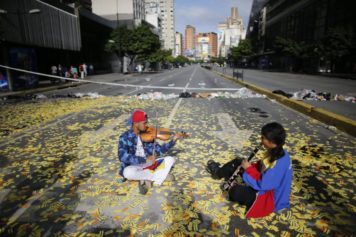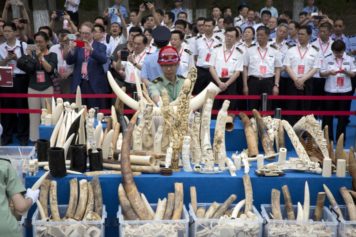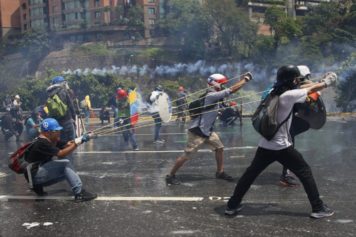NSA whistleblower Edward Snowden has fled Hong Kong, perhaps headed for asylum in Venezuela, just as the United States was trying to persuade the Hong Kong government to extradite him to the U.S.
The Justice Department, through spokeswoman Nanda Chitre, confirmed that Hong Kong authorities had told Washington of Snowden’s departure and said that the government would pursue Snowden’s case.
“We will continue to discuss this matter with Hong Kong and pursue relevant law enforcement cooperation with other countries where Mr. Snowden may be attempting to travel,” Chitre said in a statement.
The Hong Kong government announced Sunday afternoon that it had allowed Snowden to leave, two weeks after Snowden yanked the covers off the extensive U.S. surveillance system used to spy on Americans, which has resulted in a countrywide debate on the intrusiveness of the U.S. surveillance state in the wake of Sept. 11.
A Moscow-based reservations agent at Aeroflot, Russia’s national airline, confirmed Snowden was on flight SU213 on a one-way ticket to Moscow, where the flight landed on Sunday afternoon. The Russian foreign ministry said Snowden appeared to be making a connection in Moscow to another destination, but did not say where.
The Russian Interfax news service, quoting a “person familiar with the situation,” said Snowden would only be staying in the Moscow airport for “several hours” before continuing to Cuba, so he would not formally cross the Russian border or be subject to detention. An Interfax source quoted a Snowden associate saying that that he planned to continue on to Caracas, Venezuela.
“He chose such a complex route in the hope that he will not be detained and he will be able to reach his final destination — Venezuela — unhindered,” the person said.
Venezuela has long been a staunch enemy of the U.S., led by the virulently anti-American late president Hugo Chavez. Now led by former Chavez lieutenant Nicolas Maduro, Venezuela is likely to keep Snowden protected and safe from the U.S. as long as the U.S. is interested in prosecuting him.
The Hong Kong government confirmed on Sunday, in its first detailed statement about Snowden, that the U.S. had made a legal request for the issue of a provisional warrant of arrest against Snowden. The Hong Kong government concluded the request “did not fully comply with the legal requirements under Hong Kong law.”
According to the statement, Hong Kong had requested more information from the United States but had not received it.
Because the government “has yet to have sufficient information to process the request for provisional warrant of arrest, there is no legal basis to restrict Mr. Snowden from leaving Hong Kong,” the statement said.
In addition, WikiLeaks said in a statement on its Twitter feed that it had “assisted Mr. Snowden’s political asylum in a democratic country, travel papers” and safe exit from Hong Kong. It also said “Mr. Snowden is currently over Russian airspace accompanied by WikiLeaks legal advisers”—likely Sarah Harrison, the closest adviser to WikiLeaks founder Julian Assange.
The South China Morning Post reported that Snowden told the the newspaper that the N.S.A. had tapped into Chinese mobile phone companies to read millions of text messages, hacked dozens of computers at Beijing’s prestigious Tsinghua University and other computers operated by Pacnet, a major telecommunications company with headquarters in Hong Kong and Singapore.


